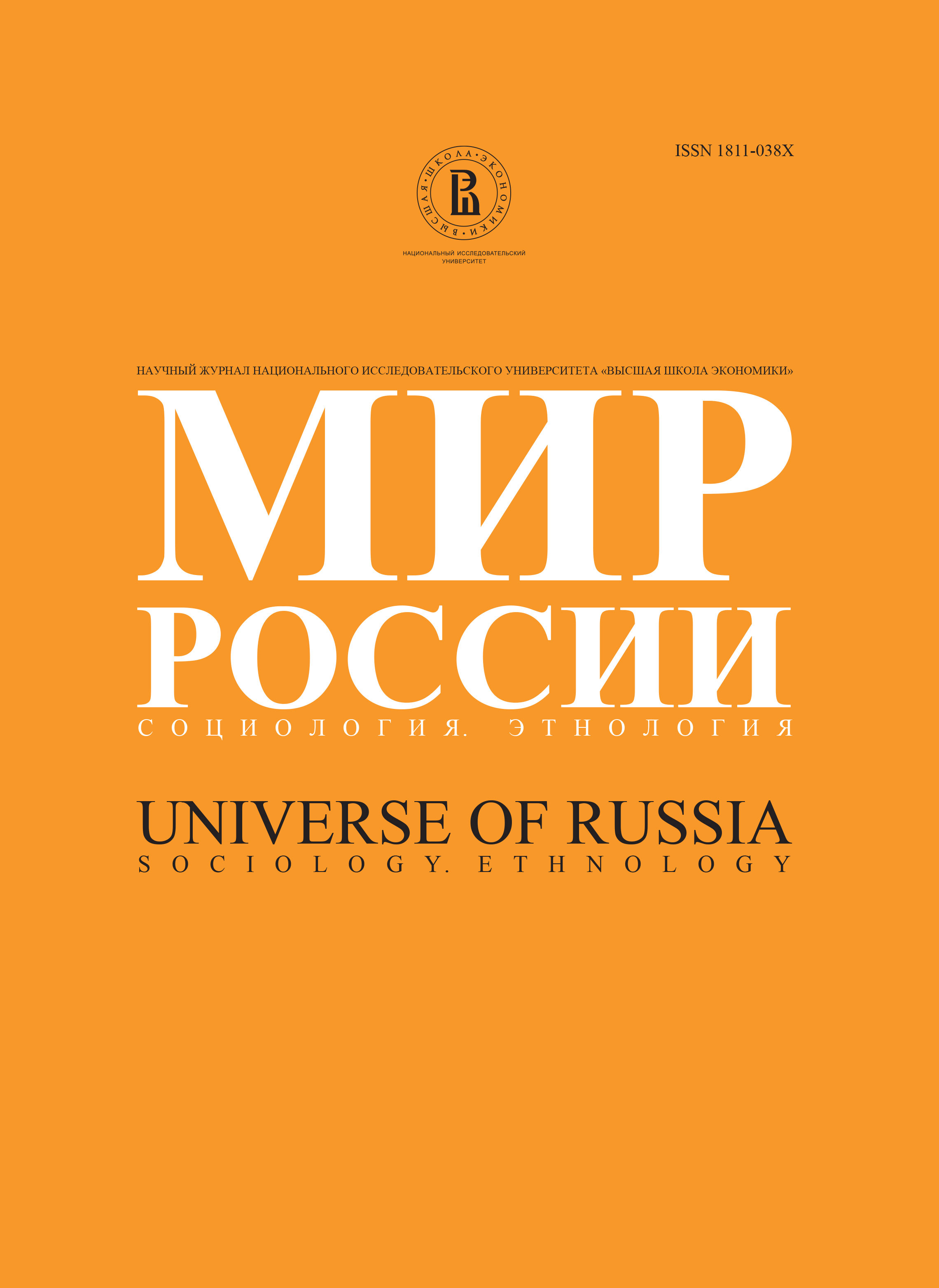Family’s Cultural Capital as a Factor of Social Behavior and Social Mobility (an empirical study in a provincial Russian city)
Abstract
Anna Ochkina — Associate Professor, Penza State Pedagogical University. Address: 37, Lermontov St., Penza, 440026, Russian Federation. E-mail: ochkina@inbox.ru
This article raises the question of social self-identification as an element of familial or individual cultural capital, and as a factor in cultural and education strategies of contemporary Russian families. The empirical data comes from a small survey conducted by the author in the city of Penza from September 2008 — January 2009. The methodology is based on D. Bertaux’s qualitative approach to the study of social reproduction and relies on the concept of human capital. The collected biographical material, which includes the cultural and occupational histories of the preceding generations, reveals the principles of social identification of respondents and the factors of their cultural and education strategies.
The notion of cultural capital, social mobility and life success may be refined through the representations of social status and its components, now particular to our society. One should not underestimate the importance of social self-identification, basic values and goals. It is through these factors that Russians assess their achievements in life, in understanding their social behavior and their strategies of social mobility. In the 1990s, the social self-identification played the role of a balancing mechanism for the social structure. It compensated for the imbalances between the actual situation of social groups, their social importance and social behavior.
Such self-identification was a product of certain cultural capital, which was accumulated in the previous economic system. In the new circumstances the pursuit of preserving this self-identification has transformed itself into certain strategies in the sphere of education and cultural consumption, correlated to the social, rather than economic status. The value of education, the orientation towards professional fulfillment and cultural development became the elements of cultural capital of families. However, the effective implementation of cultural capital implies a certain balance of subjective and objective factors of its formation and reproduction. In particular, one has to preserve and polish the social institutions which create the demand for true knowledge and develop the corresponding motivation.






